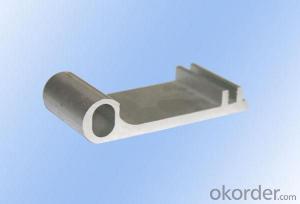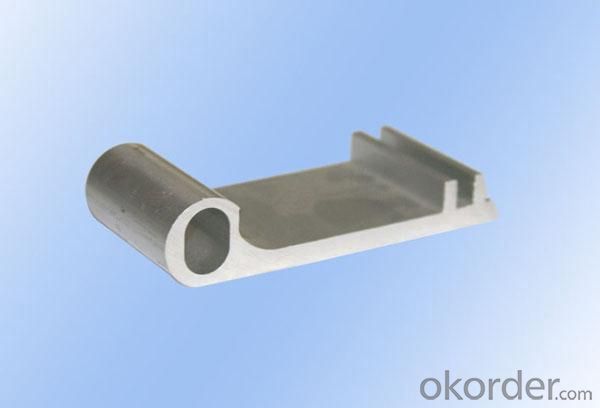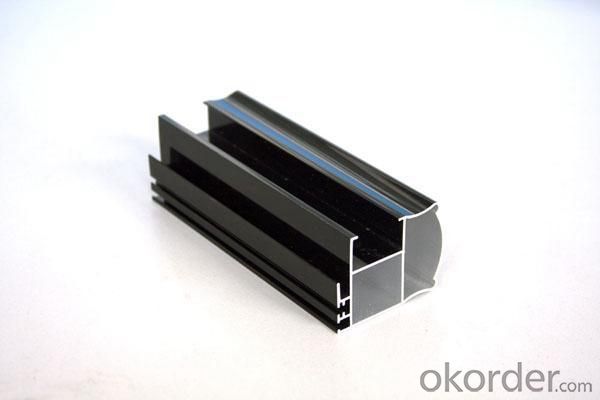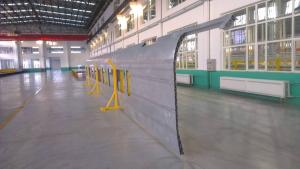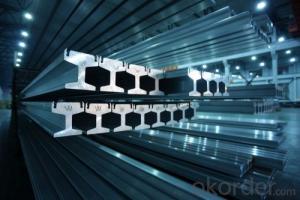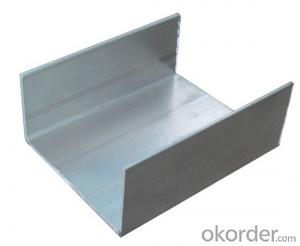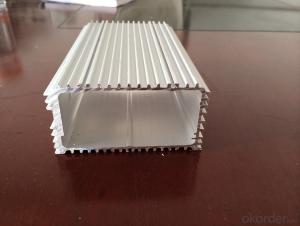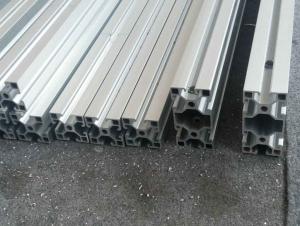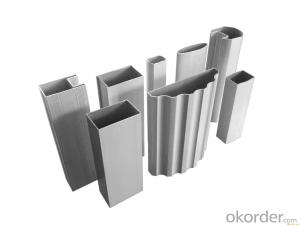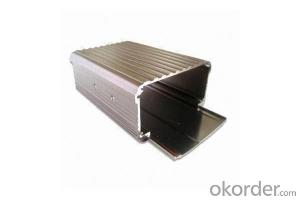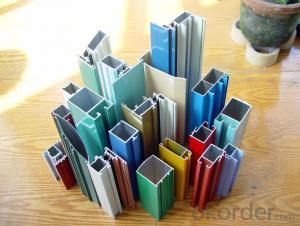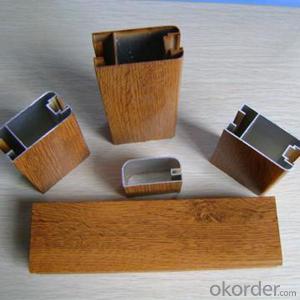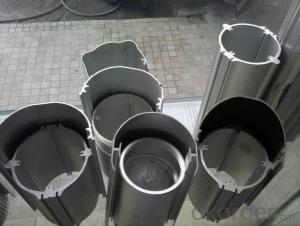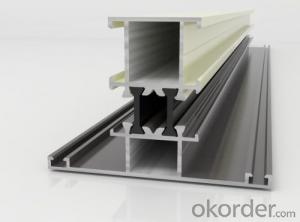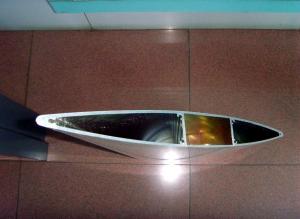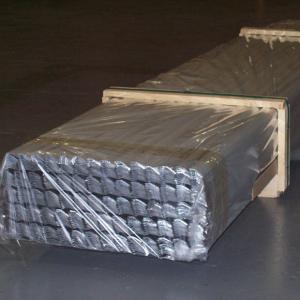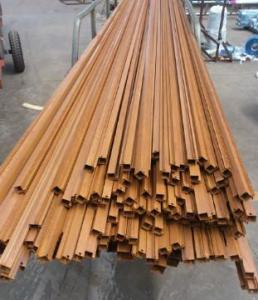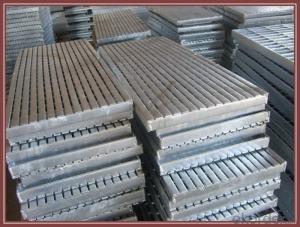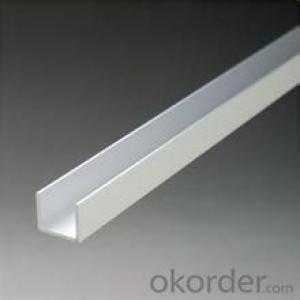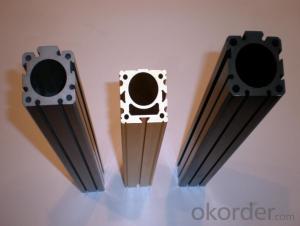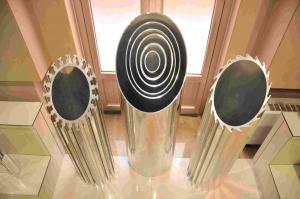Aluminum Alloy Curtain Wall Profiles for Aluminum LED Profiles Made in China
- Loading Port:
- Shanghai
- Payment Terms:
- TT OR LC
- Min Order Qty:
- 5 m.t.
- Supply Capability:
- 10000 m.t./month
OKorder Service Pledge
OKorder Financial Service
You Might Also Like
Specification
1. Specification of Aluminum Alloy Profile for Curtain Wall Made in China
Alloy | AA1050,AA1060, AA1070, AA1100 |
Temper: | H12, H14, H16, H18, H22, H24, H26, H32,HO, F |
Thickness: | 0.10-500mm |
Width: | 10mm- 2200mm |
Standard: | GB/T3880-2006, ASTM, ISO, EU standard |
Special Specification is available on customer’s requirement | |
2. Application of Aluminum Alloy Profile for Curtain Wall Made in China
wall cladding, ceilings, bathrooms, kitchens and balconies, shutters, doors,windows…
3. Feature of Aluminum Alloy Profile for Curtain Wall Made in China
Surface Quality :
Be free from Oil Stain, Dent, Inclusion, Scratches, Stain, Oxide Decoration, Breaks, Corrosion, Roll Marks, Dirt Streaks and other defect which will interfere with use,
Mochenical Property:
Chemical Composite and Mechanical Property
4. Certificate:
SGS and ROHS(if client request, paid by client), MTC(plant provided), Certificate of Origin(FORM A, FORM E, CO), Bureau Veritas and SGS (if client request, paid by client), CIQS certificate
5. Image of Aluminum Alloy Profile for Curtain Wall Made in China
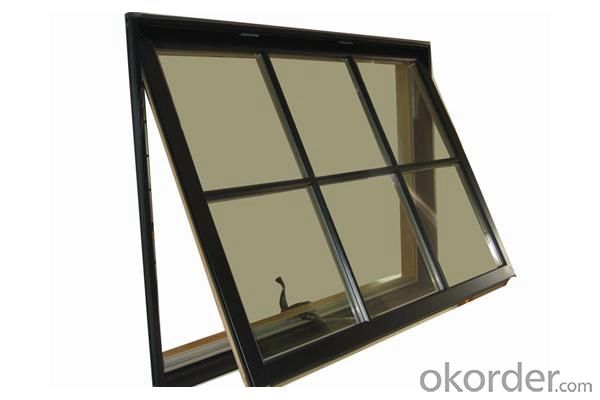
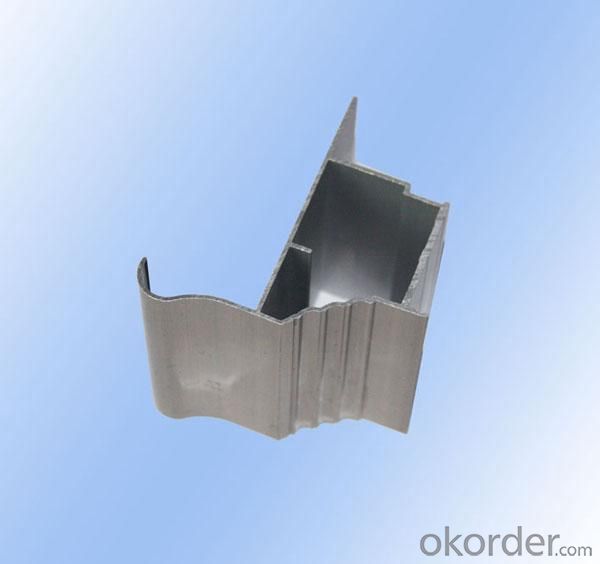
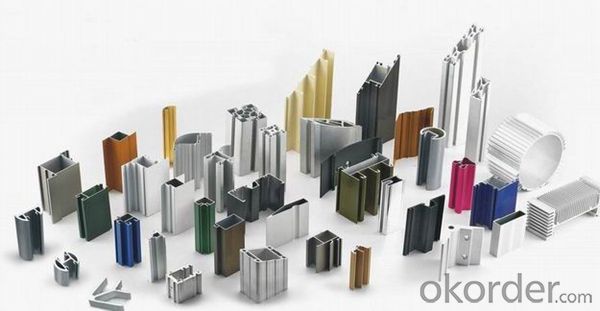
6. Package and shipping of Aluminum Alloy Profile for Curtain Wall Made in China
First, plastic cloth with drying agent inside; Second, Pearl Wool; Third, wooden cases with dry agent, fumigation wooden pallets, aluminum surface could cover blue PVC film
7. FAQ
Question 1: What is your MOQ?
We accept one ton per type for an order. But the detail we could negotiate.
Question 2: What is your normal terms of payment?
We always trade with you by T/T. But we also accept the L/C as you require.
Question 3: How many kinds of the surface treatment we can choose?
You could choose different color of powder coated. Anodized of black. matte silver, nature, champagne, bronze color. Mill finished. Wooden finished and printed.etc.
Question 4: Can you supply OEM services?
We offer OEM services for 17 years.
Question 5: How many days for opening the mould?
Normally about 10 days.According to the difficulty of your drawing.
Question 6: Can i choose the package what i want?
Yes, of course. We offer various kinds of package.e.g.PE foam. Shrink film. Wrapping paper.
But we would give you professional suggestion of package.
- Q: How do aluminum profiles contribute to energy-efficient lighting systems?
- Aluminum profiles play a significant role in enhancing the energy efficiency of lighting systems. Firstly, aluminum is a lightweight and highly conductive material, allowing for efficient heat dissipation. This is crucial in lighting systems as excessive heat can reduce the lifespan and efficiency of the bulbs. By using aluminum profiles, the heat generated by the light source can be effectively transferred away, ensuring optimal performance and longevity. Furthermore, aluminum profiles are versatile and can be designed to accommodate various lighting components such as LED strips or bulbs, reflectors, and lenses. These profiles provide a stable and secure housing for these components, preventing any damage or misalignment that could impact the efficiency of the lighting system. Additionally, aluminum profiles often feature precision engineering, allowing for easy installation and maintenance, further contributing to the overall energy efficiency of the system. Another key advantage of aluminum profiles is their ability to act as a heat sink. By directing heat away from the light source, the profiles help to maintain lower operating temperatures, reducing energy consumption and increasing the efficiency of the lighting system. This is particularly important for LED lighting, as they are highly sensitive to heat and can experience significant light output degradation if not properly cooled. Aluminum profiles enable efficient thermal management, ensuring that the LED lights operate at their optimum level, saving energy and reducing the need for frequent replacements. Moreover, aluminum is a recyclable material, making it an environmentally friendly choice for lighting systems. Using aluminum profiles promotes sustainable practices by reducing the demand for raw materials and minimizing waste. This aligns with the principles of energy efficiency and conservation, as it reduces the overall carbon footprint of the lighting system. In summary, aluminum profiles contribute to energy-efficient lighting systems by facilitating effective heat dissipation, providing a stable housing for lighting components, acting as a heat sink, and promoting sustainable practices. These profiles enhance the performance, lifespan, and energy efficiency of lighting systems, making them an essential component in modern lighting solutions.
- Q: Are aluminum profiles suitable for exhibition kiosks?
- Yes, aluminum profiles are suitable for exhibition kiosks. Aluminum is lightweight, durable, and easy to work with, making it an ideal material for constructing kiosks. Additionally, aluminum profiles can be customized and offer a sleek and modern appearance, enhancing the overall aesthetics of the exhibition kiosk.
- Q: Can aluminum profiles be used in solar reflector systems?
- Yes, aluminum profiles can be used in solar reflector systems. Aluminum is a commonly used material in solar reflector systems due to its high reflectivity and excellent corrosion resistance. Aluminum profiles can be easily customized and shaped into various forms to optimize the reflection of sunlight onto the solar panels. Additionally, aluminum profiles are lightweight and durable, making them suitable for outdoor applications. Overall, aluminum profiles are an effective and efficient choice for solar reflector systems.
- Q: How do aluminum profiles contribute to energy-saving initiatives?
- Aluminum profiles play a significant role in promoting energy-saving initiatives for several reasons. Firstly, aluminum is a lightweight material, which means that less energy is required during transportation and installation compared to other heavy construction materials. This reduces the overall carbon footprint associated with the construction process. Additionally, aluminum profiles have excellent thermal conductivity properties. This enables them to efficiently transfer heat, which is crucial for energy-saving initiatives. By using aluminum profiles in windows, doors, and facades, buildings can benefit from improved insulation and reduced thermal bridging. This helps to maintain a comfortable indoor temperature while minimizing the need for excessive heating or cooling, thus reducing energy consumption. Moreover, aluminum profiles can be effectively combined with energy-efficient glazing systems. These systems include double or triple glazing, low-E coatings, and gas-filled cavities, which further enhance the thermal performance of windows and facades. By using aluminum profiles in conjunction with energy-efficient glazing, buildings can significantly reduce heat loss or gain, resulting in reduced energy usage for heating and cooling. Furthermore, aluminum is a highly durable and long-lasting material. Its corrosion resistance properties make it suitable for use in various weather conditions, reducing the need for frequent replacements. This durability ensures that the energy-saving benefits provided by aluminum profiles are maintained over an extended period, reducing the environmental impact associated with frequent material replacements. Lastly, aluminum is a recyclable material with a high recycling rate. The energy required to recycle aluminum is significantly lower compared to the energy needed for primary production. By promoting the use of aluminum profiles, we encourage the recycling and reuse of this material, thereby reducing the demand for new aluminum production and conserving energy resources. In conclusion, aluminum profiles contribute to energy-saving initiatives by reducing transportation and installation energy consumption, improving thermal insulation, facilitating energy-efficient glazing systems, providing durability, and promoting recycling. By incorporating aluminum profiles in construction projects, we can significantly contribute to energy conservation and sustainability efforts.
- Q: How are aluminum profiles joined together?
- Depending on the desired strength, functionality, and aesthetic appeal, various methods can be employed to join aluminum profiles. The most commonly utilized techniques include mechanical fastening, welding, and adhesive bonding. When it comes to ease of assembly and disassembly, mechanical fastening is a preferred option. Screws, bolts, nuts, rivets, and self-tapping screws are frequently employed to connect aluminum profiles, ensuring a stable and secure joint that allows for easy adjustment or dismantling. Welding, on the other hand, presents an effective means of joining aluminum profiles. Techniques such as TIG (Tungsten Inert Gas) or MIG (Metal Inert Gas) can be applied to melt and fuse the profiles together, resulting in a strong and permanent joint. Welding finds common usage in structural applications where high strength and rigidity are imperative. For a more visually appealing connection, adhesive bonding is often employed. Industrial-grade adhesives specifically formulated for aluminum bonding create a robust bond between the profiles. This method offers a seamless appearance, with no visible fasteners or weld marks. Adhesive bonding is commonly utilized in architectural applications, where a clean and sleek finish is desired. In certain instances, a combination of these methods may be employed to achieve the desired joint. For example, adhesive bonding can secure the profiles together, while mechanical fasteners provide additional strength and stability. Ultimately, the choice of joining method is contingent upon factors such as the application, required strength, accessibility, and desired appearance. Manufacturers and fabricators meticulously consider these factors to determine the most suitable method for joining aluminum profiles.
- Q: What are the top 20 Chinese architectural aluminum profiles?
- 7 、 Guangya Aluminum Industry Co., Ltd.8 、 Guangdong Xinhe Aluminium Industry Co., Ltd.9, Suzhou LOPSKING aluminum Limited by Share Ltd10, Fujian Minfa aluminium Limited by Share Ltd11, Shandong Huajian Aluminum Group Co. Ltd.12 、 Guangdong Weiye aluminium factory Co., Ltd.13 、 Zhaoqing Asia Aluminium Factory Co., Ltd.
- Q: Are aluminum profiles suitable for playground equipment?
- Yes, aluminum profiles are suitable for playground equipment. Aluminum is a lightweight and durable material that is commonly used in various industries, including playground equipment manufacturing. It is known for its strength and resistance to corrosion, making it suitable for outdoor applications. Aluminum profiles provide structural stability and can withstand the weight and forces exerted during play. Additionally, aluminum is non-toxic and does not rust, ensuring the safety and longevity of the playground equipment. The versatility of aluminum allows for the creation of various shapes and designs, providing endless possibilities for innovative and attractive playground structures. Overall, aluminum profiles are a suitable choice for playground equipment due to their strength, durability, and safety features.
- Q: Are aluminum profiles suitable for outdoor sign applications?
- <p>Yes, aluminum profiles are commonly used for outdoor signage due to their durability, resistance to corrosion, and lightweight properties. They can withstand various weather conditions without rusting or fading, making them an ideal material for long-lasting outdoor signs. Aluminum profiles can be easily cut, shaped, and assembled, offering flexibility in design and functionality.</p>
- Q: This question asks about the various materials used for insulation purposes when working with aluminum profiles.
- <p>Different types of insulation materials used with aluminum profiles include thermal insulation materials such as polyurethane foam, mineral wool, and polystyrene. These materials help in reducing heat transfer and maintaining temperature control. Additionally, electrical insulation materials like PVC, polyethylene, and silicone rubber are used to prevent electrical conductivity and protect against electrical hazards. Acoustic insulation materials like fiberglass and soundproofing foam are also used to reduce noise transmission through aluminum structures. Each type of insulation serves a specific purpose and is chosen based on the application's requirements.</p>
- Q: 30*40 how much aluminum meter?
- 30*40 aluminum tube color of grain price is generally about 13.6-19.8.
Send your message to us
Aluminum Alloy Curtain Wall Profiles for Aluminum LED Profiles Made in China
- Loading Port:
- Shanghai
- Payment Terms:
- TT OR LC
- Min Order Qty:
- 5 m.t.
- Supply Capability:
- 10000 m.t./month
OKorder Service Pledge
OKorder Financial Service
Similar products
Hot products
Hot Searches
Related keywords
